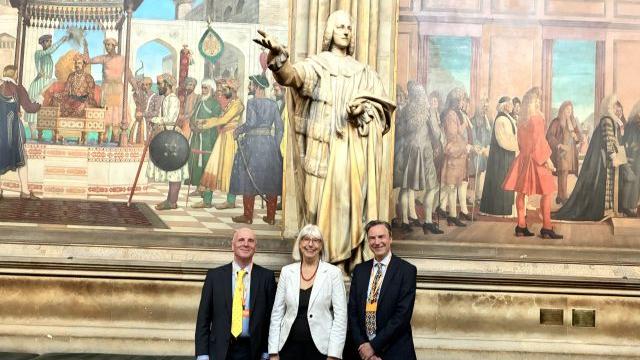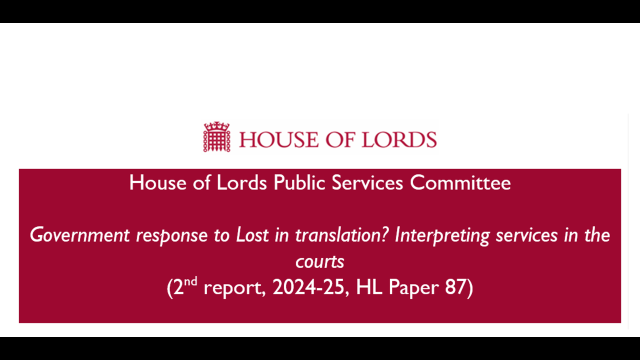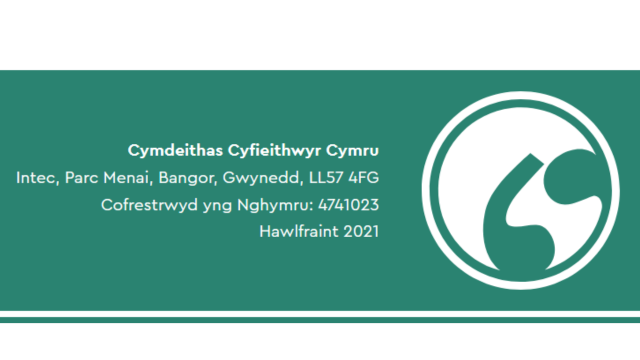-
QUALIFICATIONS
- For Linguists Worldwide
- For UK Public Services
- Preparation
- Policies & Regulation
-
MEMBERSHIP
- Join CIOL
- Membership grades
- NEW for Language Lovers
- Chartered Linguist
- Already a member?
- Professional conduct
- Business & Corporate Partners
-
LANGUAGE ASSESSMENTS
- English
- All Other Languages
-
CPD & EVENTS
- Webinars & Events
- CIOL Conference Season 2025
- Networks
- CIOL Mentoring
-
NEWS & VOICES
- News & Voices
- CIOL eNews
- CIOL Awards
- The Linguist Magazine
- Jobs & Ads
-
RESOURCES
- For Translators & Interpreters
- For Universities & Students
- Standards & Norms
- CIOL & AI
- All Party Parliamentary Group
- In the UK
- UK Public Services
- Find-a-Linguist
Justice should not get lost in translation
.jpg?itok=gQR6fy94)
Baroness Morris of Yardley, who is chair of the House of Lords Public Services Committee, has written about their inquiry in the Law Gazette.
Some of the key points are:
"The House of Lords Public Services Committee inquiry into Interpreting Services in the Courts took evidence from court officials, barristers, solicitors, the Ministry of Justice (MoJ) and interpreters themselves. We found a real disconnect between what the government hopes is happening, what the language companies believe is happening and what front-line workers report is happening with interpreting in the courts.
- Our report concludes that the current data collection, quality assurance and complaints systems lead to a significant under reporting of problems and could threaten the effectiveness of some court cases.
- Every day there are many highly qualified, excellent interpreters, successfully helping to deliver justice in the courts. The interpreter workforce is fundamental in bringing about the improvements that we want to see. Interpreting is a competitive field, and demands highly-qualified, expert professionals.
- However, the evidence points to a significant crisis in the recruitment and retention of these professionals. Low and opaque pay, a lack of control over earnings, poor remuneration for cancelled or delayed bookings and a lack of professional respect is leading too many interpreters to seek work elsewhere.
All these problems are solvable. The MoJ is currently in the process of negotiating a new contract for Interpreting Services in the Courts and it must seize the opportunity to solve the problems outlined in our report and to reform the service. Failure to do so really could mean that justice for some, is indeed lost in translation."
See Baroness Morris's full article in the Law Gazette here.
Filter by category
More
The Chartered Institute of Linguists (CIOL), Incorporated by Royal Charter, Registered in England and Wales Number RC 000808 and the IoL Educational Trust (IoLET), trading as CIOL Qualifications, Company limited by Guarantee, Registered in England and Wales Number 04297497 and Registered Charity Number 1090263. CIOL is a not-for-profit organisation.








